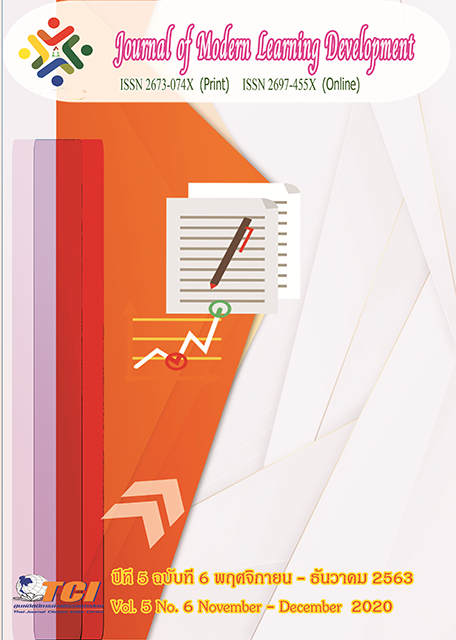Model of KhonKaen Province Administration according to the Smart City Guidelines
Main Article Content
Abstract
The purposes of this research were: 1) to study problems and obstacles in driving “KhonKaen Smart City” according to the development plan of KhonKaen Municipality 2) to analyze the issue on Khon Kaen Smart City of KhonKaen Municipality 3) to study the administrative strategies according toKhonKaen Smart City development plan of KhonKaen Municipality and (4) to create administrativeguidelines in line with driving of KhonKaen Smart City development plan of KhonKaen Municipality. The target group consisted of 13 people who played an important role in driving KhonKaen Smart City development plan being divided into3 groups: (1) executives and government officials in local government agencies in KhonKaen province, with the total number of6 people, (2) tourism promotion group with the total number of 4 people and (3) related government agencies group with the total number of 5 peopleusing purposive sampling. The instrument used in this research was interview form. The data were analyzed by using inductive method, namely analysis, interpretation and summary.
The research results were found that: 1) the problem, in overall, was the administration within the organization that could not be implemented in accordance with the goals of Khon Kaen Smart City development plan, such as the mission priorities setting, bureaucratic administrative problem which wasinflexible and problem on proactive performance, while the administrative obstacle was less understanding and perception on the essence of the Smart City of the people which affected cooperation from the public sector 2) regarding the mission on Smart Mobility, the mission on modern electric train system, transportation system and bus station was ratedat the highest level of perception of the people 3) transformational leadership and opening channels for participation were important strategies that helped driving the roadmap to be successful and 4) the empowerment on driving the roadmap from 3major sectors, namely the government, private and public sectors, to form “Town Hall Meeting”, a forum of learning changing,which was a model led to the goal of upgrading KhonKaento be a city with smile, peaceful, innovative,green,learning and non-boundary city of thought.
Article Details
References
ธรรมรัตน์ ธรรมยาฤทธิ์. (2561).เอกสารประกอบการบรรยายนโยบายสาธารณะและการเปลี่ยนแปลง. 11 กรกฎาคม 2561. มหาวิทยาลัยราชภัฎเพชรบูรณ์ : เพชรบูรณ์.
นันทวัน วงศ์ขจรกิตติ. (2559). นโยบายการให้บริการจังหวัดอัจฉริยะของประเทศไทย. วารสารวิจัยและพัฒนา วไลยองกรณ์ในพระบรมราชูปถัมภ์, 11 (3), 365 – 377.
บุญทัน ดอกไธสง. (2562). รัฐประศาสนศาสตร์เปลี่ยนโลก. วารสาร มจร สังคมศาสตร์ปริทรรศน์, 8 (2), 301-310.
วงศ์ธีรา สุวรรณิน. (2561).ธุรกิจระหว่างประเทศ. มหาวิทยาลัยรามคำแหง : กรุงเทพมหานคร.
เอกชัย สุมาลี และคณะ. (2560).ความเป็นไปได้ในการสร้างเมืองอัจฉริยะด้วยเทคโนโลยี Internet of Things. รายงานการวิจัยสำนักงานกองทุนสนับสนุนการวิจัย (สกว.).กรุงเทพมหานคร : สำนักงานกองทุนสนับสนุนการวิจัย (สกว.).
Albert J. (2016). Contextual Conditions, Governance Models, and Public Value Assessment. Journal of the Knowledge Economy. 34 (6). 647-656.
Meijer., A. (2016). Governing the smart city: a review of the literature on smart urban governance. International Review of Administrative Sciences. 82 (2), 392-408.


